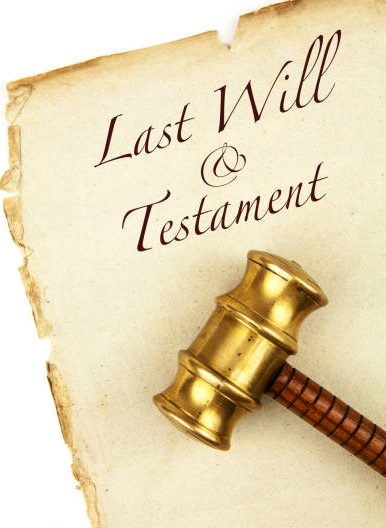What is Probate?
Probate is the process of proving and registering in the Supreme Court the last Will of a deceased person. When a person dies, somebody has to deal with their estate.
If the deceased died leaving a valid Will, it is the duty of the executor named in that Will to call in the assets, pay liabilities and distribute the estate to the beneficiaries so named. In order to get the authority to do this, the Executor would need to obtain a legal document called a Grant of Probate.
To protect the interests of those who hold the deceased’s assets (for example banks) the Executor may be asked to prove they are authorised to administer the Will before the assets can be released. The Grant of Probate is the proof required.
The Grant of Probate is not only proof that the person named in the Grant is entitled to handle the assets, but upon the Grant of Probate, all assets of the deceased are vested in the name of the executor and not the NSW Trustee.
An executor can be an individual or a trustee. Once Probate has been obtained, asset holders (such as the Bank, Department of Lands, Aged Care Facility or Share Registry) will release or transfer the deceased’s assets into the executor’s name so that the executor may go about his or her duties.
All Grants of Probate are stored, along with the corresponding Will, at the Supreme Court. These are public documents. If a deceased person does not have a Will, validation of their estate and benefactors is not done with a Grant of Probate, but with a similar document known as Letters of Administration.
An application for a Grant of Probate must be in the prescribed form and satisfy the Supreme Court of NSW that the Probate and Administration Act (NSW) and Supreme Court Act (NSW) have been complied with.
How Do I Apply For a Grant of Probate?
To obtain a Grant of Probate, the executor named in the Will must apply to the Probate Office of the Supreme Court. If the application is approved, the Executor is given a Grant of Probate to confirm the author of the Will has died, the Will is authentic and the executor is who they say they are.
Only those named as an executor in the deceased’s will can apply for a Grant of Probate. The executor can be an individual or more than one person acting jointly and must be over 18 years of age.
Applications for a Grant of Probate should be made within 6 months from the date of death of the deceased, otherwise, the Court requires an explanation for the delay.
Usually, the Court will require the deceased’s original will to be filed with the Probate application. However, where the original will has been lost, probate can be granted on a true copy of the last will, and an informal will may be accepted by the Court if it is satisfied that the informal will constituted the last will of the deceased.
Once Probate has been granted by the Court, the executor has legal authority to deal with the estate’s assets and liabilities within NSW and can proceed to the administration and distribution of the estate in accordance with the deceased’s will.
It is important to remember that Probate granted in NSW only authorises the Executor to deal with the estate’s assets held in NSW. If the deceased has assets in another Australian state or territory, or overseas, a Reseal of Probate or new Grant may be required.
How Long Does It Take to Get the Grant of Probate?
The first step in the process, lodging the online notice of intended application for Grant of Probate, necessitates that 2 weeks pass before the executor submits their application for Letters of Administration to give enough notice to any potential creditors or claimants on the estate.
After the application is submitted it can take anywhere from 2-6 weeks, depending on how busy the Supreme Court of NSW is, before the Grant is issued.
Do I need the Grant of Probate?
You might need the NSW Grant of Probate if the deceased held assets requiring the Grant of Probate for their release. Asset holders such as banks, share registries, nursing homes, the Land Titles Office (Land and Property Information NSW) and other financial institutions may wish to indemnify themselves by asking the executor, or next of kin, to provide a certified copy of the Grant of Probate before they hand over the assets.
The Supreme Court of NSW does not force all executors to obtain probate in NSW.
The law is complex and difficult to understand so we make sure we take the time to make sure you thoroughly understand and then how we will work with our knowledge of the law to obtain the best possible result.
If you need legal help with probate in NSW, please make an appointment by ringing me on my mobile or emailing me. I am available during office hours at my city office or after hours and weekends at my Riverwood office.
Contact JCL Legal now!
sources: sydneywillslawyer.com.au, lawsociety.com.au, probatesydney.com.au, nationalprobate.com.au



































